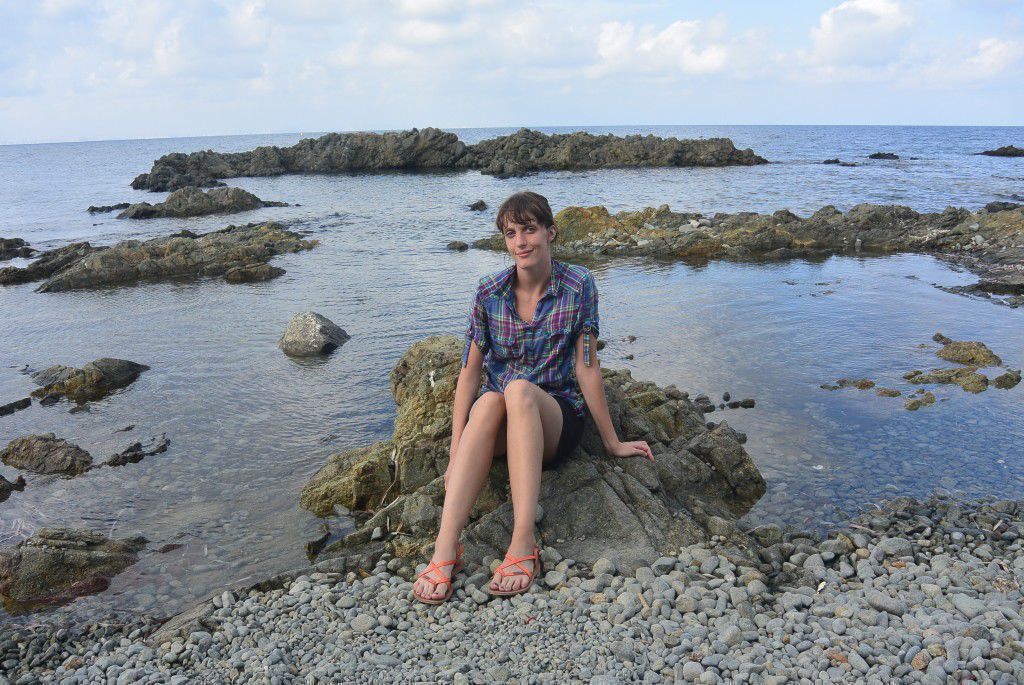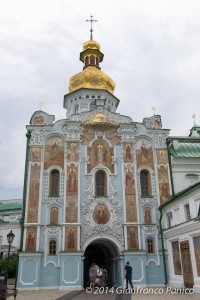How to keep New Year’s resolutions
We’re well settled into the new year and we’re all full of hopes and dreams for the next 12 months – learning a new language, getting fit, changing our job, travelling more. Most likely in the first week of the year you were super pumped, ready to drop anything to stick to your main goal(s).
By the time the second week came however, you kind of settled in, relaxed the rules a bit and got back to some of your old habits. When January’s over, your goal will be completely forgotten like it was never there and you’re going to be thinking ‘how silly of me to think that I could learn Spanish’.
That can be one of the ways the future looks. Let’s take a different turn. Lets push through the phase when we want to give up and see what happens. The other road is familiar but wouldn’t it be nice to see what else can happen? What if you did learn Spanish this year? You could read books in Spanish, and you could talk to other Spanish speakers, and on your next holiday in Spain you could strike up a conversation with a stranger and end up making new friends.
Studies have shown that the human brain tends to value immediate rewards more than future rewards. When you set a goal or a resolution you are in fact making plans for your future self and it ‘s easy to imagine how your life can look. But, when the time comes that you actively pursue that goal most people choose immediate gratification and opt to do what they feel like in the moment.
Now that we understand how our mind works, it’s time to find ways to stop this from happening.
- Start slowly and build a ritual. Set yourself to practice for half an hour a day – that’s not too much to ask right? Offer yourself a reward after – if you’re learning a language with uTalk, the reward comes in the form of earning points and we all like to build up to a nice score, right?
- Put aside some of your other tasks. Obviously not work or eating but if you usually browse the Internet while commuting why not replace that with your main goal?
- Keep your eyes on the prize – never lose sight of your motivation. Look at pictures of beautiful Spanish landscapes and imagine yourself having a chat with the locals, or listen to Spanish songs and try to understand the lyrics.
I hope this helps you push through the temptation of giving up and will ultimately get you to your goal. And don’t worry about making mistakes; the only person who loses is the one that gives up, so no matter how slow you are going, it’s still better than if you weren’t doing anything.
And if your goal is to learn a language (or twelve…), there’s still time to join the uTalk Challenge!
Ioana
Travels with a language geek
After almost three years as an (unofficial, for the last year) member of the EuroTalk family, I’ve finally decided that it’s time for me to move on and take my passion for languages and cultures on the road. So, I’m hanging up my localisation project manager hat (not literally of course – there’s no designated hat for that) and setting off on a trip across Europe.
 I have to say that at the moment my plans are pretty vague. My partner has a car, so we’re packing our stuff in the boot, getting in and heading off for a mega road trip across Europe: the Netherlands, Germany, the Czech Republic, Poland and Ukraine, for a start. Then the idea is to end up in Lviv, Western Ukraine and stick around there for a while until we decide the next phase of our plan. There’s no particular time-scale on any of this – we’re simply going to drive from city to city, visit a few friends, see some sights and move on when we feel like it. The only limit on how much time we can spend driving from place to place is money, and how long we can stand spending that much time together. When we finally get to Lviv, we’re planning to rent a flat there for a while and live the digital nomad lifestyle, experiencing life in Ukraine and using Lviv as a base from which to explore other parts of Eastern Europe.
I have to say that at the moment my plans are pretty vague. My partner has a car, so we’re packing our stuff in the boot, getting in and heading off for a mega road trip across Europe: the Netherlands, Germany, the Czech Republic, Poland and Ukraine, for a start. Then the idea is to end up in Lviv, Western Ukraine and stick around there for a while until we decide the next phase of our plan. There’s no particular time-scale on any of this – we’re simply going to drive from city to city, visit a few friends, see some sights and move on when we feel like it. The only limit on how much time we can spend driving from place to place is money, and how long we can stand spending that much time together. When we finally get to Lviv, we’re planning to rent a flat there for a while and live the digital nomad lifestyle, experiencing life in Ukraine and using Lviv as a base from which to explore other parts of Eastern Europe.
You might wonder why of all places I’ve chosen to go and live in Ukraine. Well, I wish I could give you a really great and well-thought out reason, but the simple fact is: it’s really cheap to live there right now! According to NomadList.com, you can live in Lviv on $400 a month. That’s around £250 – less than half of what I pay each month in rent here in London. Which is pretty appealing to someone who is trying to live as a digital nomad for the foreseeable future. For those of you who don’t spend as much time as I do stalking travel bloggers on Twitter, a digital nomad is someone who lives abroad and/or travels indefinitely, funding themselves by working remotely via wifi and their laptop. A few intrepid travellers out there have managed to fund themselves all the way around the world just by blogging, writing or completing other online work. In my case I’ll be translating to earn my daily bread, whilst pretending to be a super-cool international travel blogger the rest of the time. It’s all about wearing expensive sunglasses and taking selfies, I’m assured.
But taking advantage of 30p beers isn’t the only reason I’m excited to experience life in Eastern Europe. As a language geek, of course I can’t wait to try my hand at picking up Russian and bits of other local languages: Polish, Ukrainian and Czech sounds like a start! Not to mention finding out as much as I can about the culture, lifestyle and places of this amazing region. Oh, and I’ll be bombarding everyone with updates and photos via my brand-new blog: postcardsfromukraine.com, which is already in the top ten blogs about being a digital nomad in Ukraine written by a Brit and an Italian. So, if you’re curious, feel free to catch up with us on Twitter @ukrpostcards or the Postcards from Ukraine Facebook page, and I promise to keep EuroTalk updated on my language-learning goals too.
Alex
10 reasons to visit… Kiev
A couple of months ago, I spent a few days in the Ukrainian city of Kiev, which turned out to be a fascinating and occasionally surprising place to visit. So here, in no particular order, are my top ten reasons to go and check it out for yourself.
1. It’s so cheap!
Probably one of the highlights of spending five days in Kiev was figuring out how much we’d just paid for each meal, trip etc… After eating a ridiculously large lunch at the fantastic Vagon, including drinks, appetisers and dessert, we realised it only cost £15 for two people. And even better, you can ride the Metro for about 10p (regardless of distance), take buses all over the city for 10p and ride the Funicular for about 20p. Taxis tend to charge you a flat, tourist rate of 100 hyrynas, which is still only around £5 to get from the airport to the city.
2. Chill out on the beach
Yep, there’s a beach. If you cross the bridge to the other side of the river, there’s a proper sandy beach where locals go to soak up the (surprisingly hot) sun. You can abseil from the top of the hill down to the beach, bungee jump from the bridge, swim in the river, or just sunbathe and eat ice creams that cost you less than 50p.

3. Crazy nightlife
Ukrainians seem to like to party, with lots of booze and dancing! Coyote Ugly is a favourite spot where you can smoke shisha, drink vodka shots, dance on the bar, and still come away with change from £20. However, be warned that if you ask for water in a British accent, you’re likely to come away with yet another (unwanted) shot of vodka! Apparently Arena City (quite central) is also worth a look with several different bars and outdoor seating areas.
4. Maidan square
Maidan is the city’s central square and home to some of the most recognisable statues and monuments. During our visit, it was also home to numerous barricades – many built from rubble, rubbish, tyres and whatever else was to hand. There were also many burned-out cars and even buildings which had been burned out by the police during the recent conflict. People had even pulled up the cobblestones from the ground and used them to throw during the riots. Here and in Khreschatik street you’ll also find lots of memorials to people who died during the revolution.
5. Take a trip to the world’s most famous nuclear disaster site
Admittedly this might not be on every tourist’s to-do list, but it certainly was on mine! You can take a day-trip to Chernobyl for around £100 per person, which includes an extremely well-organised bus trip to the town, lunch, fully-guided tour by really excellent guides and the amazing opportunity to take pictures by the reactor and in the deserted town of Pripyat, with its famous funfair, which was never opened to the citizens of the town before it was evacuated in 1986.

6. Brunch at Koritsa
I don’t know if this place is particularly famous, but it should be, for its awesome brunches with eggs, pancakes, cake and whatever else, plus juice and coffee for less than £15 for two people. Also try Vagon for its fantastic tagines, Varenichnaya for Ukrainian specialities (Vareniky are ravioli-esque dumplings) or Puzata Hata, which is a cafeteria-style chain that sells Ukrainian food by weight.
7. Take the Funicular up the hill
If you read Liz’s post a few months ago about her trip to Naples, you’ll remember she had a trip up the hill on the ‘funicolare’. Well this is pretty much the same thing… A carriage which takes you up the side of the hill for the eye-watering price of 20p. When you’re at the top, you can enjoy an amazing view of the city and river, as well as the park (albeit with very spiky grass) and one of the more surreal monuments – the archway representing friendship between Russia and Ukraine… The less said about that the better, maybe. Try a Kvas which is a really, really strange drink – something like a very sweet, non-alcoholic beer.
8. Beserabka market
This is a covered market just off Khreshatyk (the main street) and is a great place to wander around and see a range of really great quality fruit, caviar, salami, cheese and lard (which is strangely popular here…). Just be aware that the vendors will do the hard-sell on you even if you don’t speak Russian. We walked through with no intention of buying anything and came away with a jar of caviar and a block of cheese without even realising what was happening!
9. Pechersk Lavra
This landmark translates as something like the Monastery of the Caves, and is a particularly unique site, where you can spend at least a whole afternoon. It’s a complex of various different churches, as well as the crypts below where you can see the mummified bodies of saints by candlelight. The architecture here is particularly spectacular, with a myriad of golden domes, not to mention a great view of the city.
10. Sightseeing all the monuments around the city
There are loads of different statues and buildings around the city that are worth seeing. Climb the hill to see the St Andrew Church (and an amazing view), visit the St Sophia Cathedral (one of the Seven Wonders of Ukraine, apparently) and several other cathedrals, churches and more…
Don’t forget to download our free app, uTalk, and learn the basics in Russian or Ukrainian (or both!) before you leave – not many people in Kiev speak English, so you may find knowing a few words can make a huge difference.
And if anyone has any other tips or reasons to visit Kiev, please let us know in the comments!
Alex (with thanks to Gianfranco for the photos)



